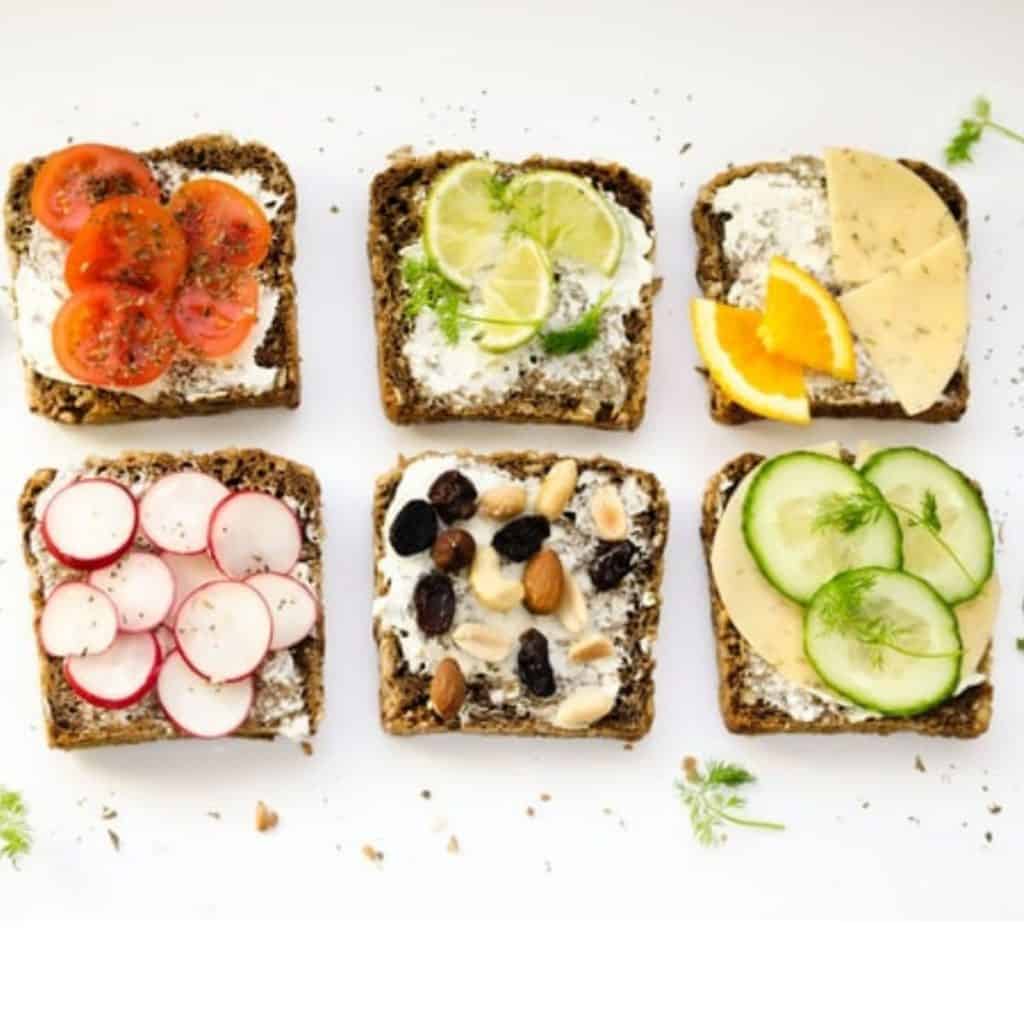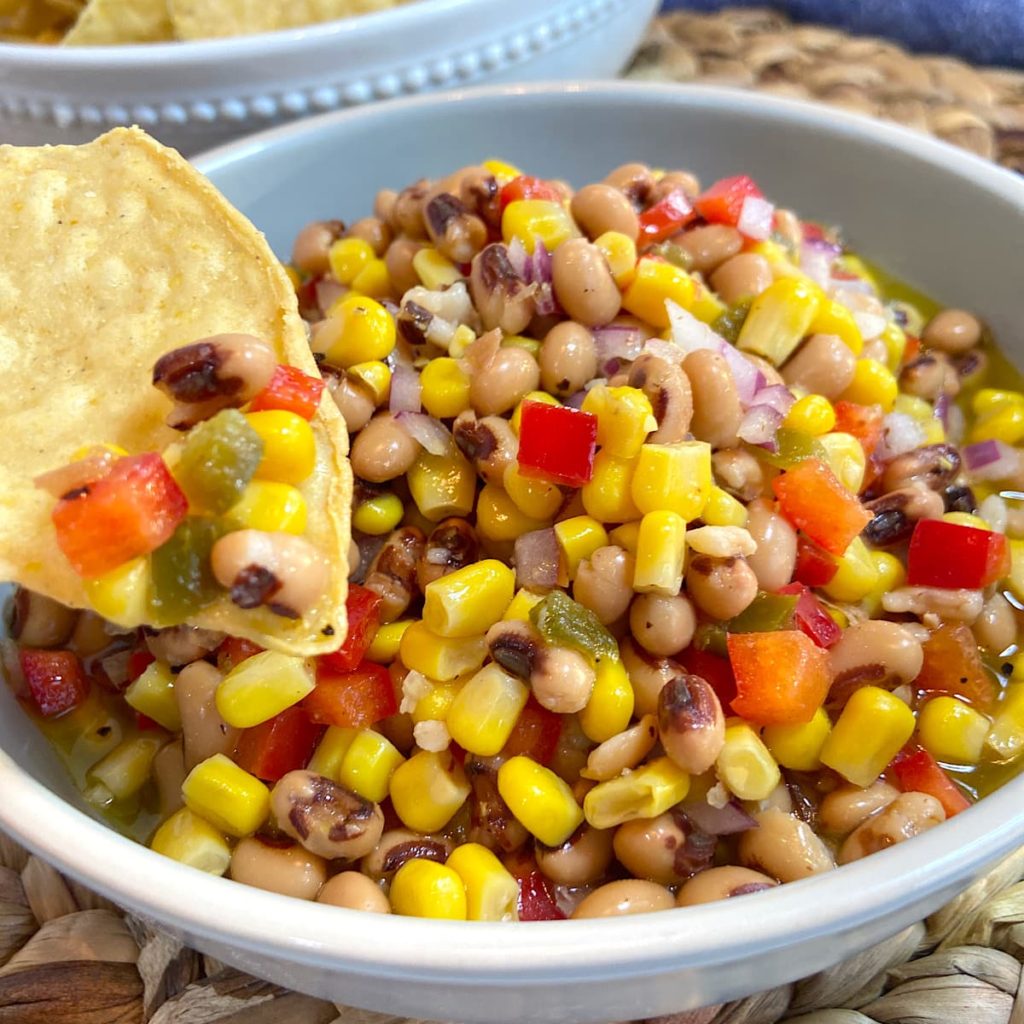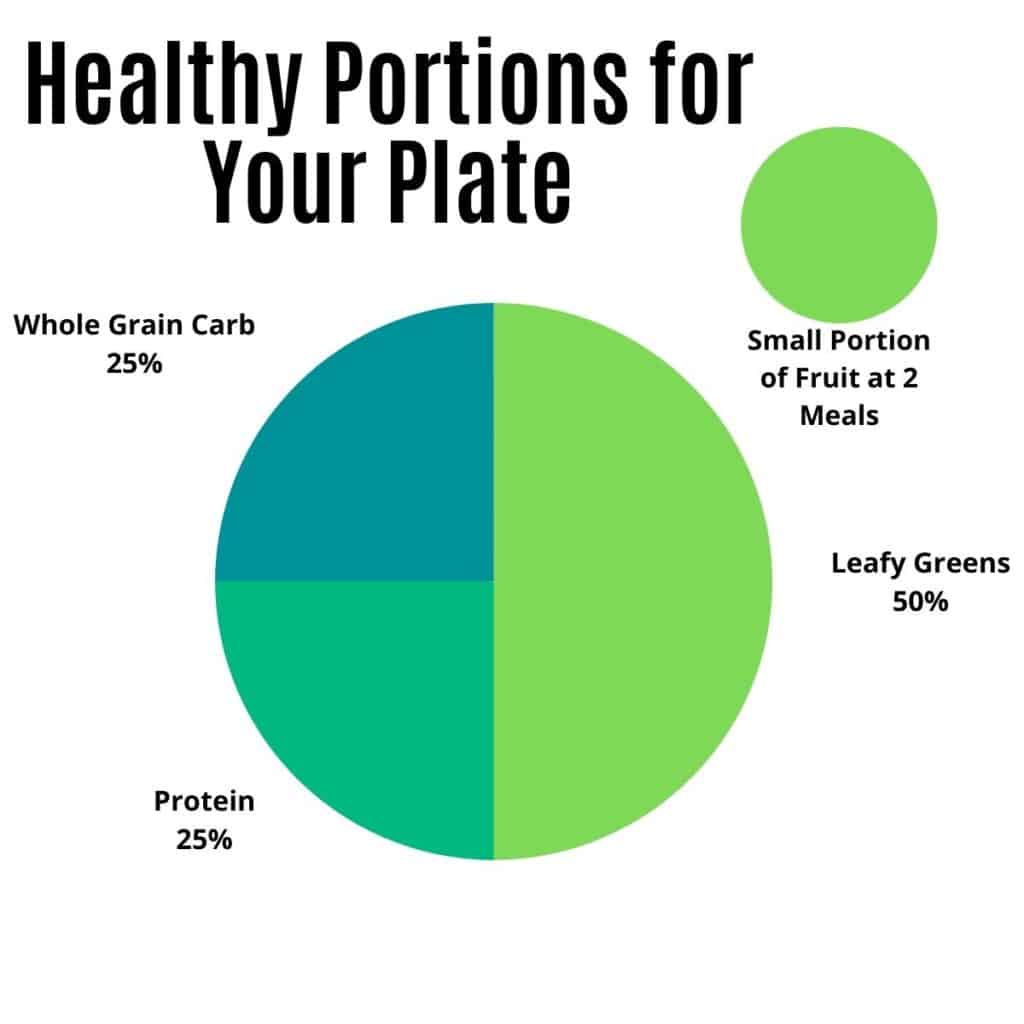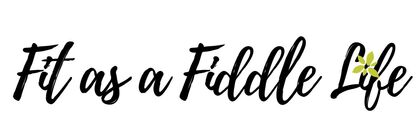This post may contain affiliate links. This means I may make a small commission at no additional cost to you when you make a purchase. Find out more in the Disclosure Policy
Looking for healthy eating tips to get your weight loss back on track? Learn simple strategies that will make a big difference in long-term weight loss and health benefits.
Right Mindset for Healthy Eating

Are you ready to start losing weight?
Your pants are getting a bit too snug or maybe you don't care for your image in that holiday selfie.
Have you enjoyed yourself over the holidays and are ready to get back on track?
Some may not be focused solely on weight loss, but want to lead a healthier life after almost a year of a pandemic.
Choosing a healthier lifestyle and eating habits can help manage your weight and when continually followed, help reverse weight gain. Most people will reap health benefits from relatively minor reductions in weight. So as you can see, there is no downside to making healthy eating changes.
Whatever your motivation, I am thrilled you are here and I hope these tips help you start on your journey successfully.
So where do you start?
Before you start on a healthy eating plan, you should evaluate if you are ready.
Being mentally prepared to make changes in food choices, perhaps limiting the foods you regularly eat or the amounts of foods you usually consume.
Is this a time when you can focus on healthy eating? What I mean is, are you at a time in your life when you are free to focus on yourself and start making healthy choices? Try to pick a relatively stress-free time.
Changing jobs, relationships, or moving may be stressful times when it will be harder to focus on healthy eating choices.
Being in the right frame of mind is important. Making healthy eating changes for yourself is important. The motivation to keep going will be stronger when you are making these changes and not doing it for someone else.
Calorie Counting vs Carbohydrate Tracking
To calorie count or not. To track carbohydrates or not.
That is the question. Counting every calorie or carbohydrate you eat is a challenge. Both types of diets are tedious to follow long term.
When you first start on a diet, you are motivated to track these measures of nutrition.
There are handwritten journals or the MyFitnessPal App on your phone that will help you track the nutrients you eat.
But after the first couple of motivated weeks or if stressful or busy times get in the way, it is easy to stop this detailed way of dieting.
This is when you may fall off your program. They say over 50% of weight-loss resolutions, are only followed for the first couple of weeks after they are made. This is frustrating.
So how to make healthy eating changes last long term for long term benefits?
Healthy Focus on Food

Neither severely limiting calories nor carbohydrates are healthy long-term.
Trendy diets that focus on low carbohydrates with high fat, when a followed long term may set up us to miss key nutrients.
Not All Carbohydrates are Created Equal
When thinking about limiting carbohydrates, you should focus on those sugary carbohydrates found in sodas, candy, cookies, and baked foods. They trigger rapid rises in blood glucose..
But, whole grain carbohydrates that include whole nutrition and fiber are healthy and good to include in your diet in moderation. The fiber helps keep your hunger satisfied by making you feel full faster and limits blood sugar spikes.
Don't Forget Your Protein
Protein is important for muscle and helps satisfy your hunger. Focus on low-fat dairy, lean meat, poultry, seafood, and plant-based forms of protein found in nuts, beans, and legumes.
Including non-plant-based protein is also important in providing vitamin B12. This important vitamin may be found in lower levels as we age or in people who eat no animal products. Low levels potentially contribute to anemia and digestive issues that may present as fatigue, weakness, and memory loss.
Focus Your Fat
Eating a high-fat diet leads to high-calorie intake. But you can't totally remove all fat from your diet. Instead, choose healthy unsaturated oils such as extra virgin olive oil and avocados. They help keep you satisfied and may provide other health benefits too.
Ensure Good Nutrition
Ensuring a good nutrient-dense diet can help ensure long-term success. Focusing on a healthy diet can help manage excessive hunger and cravings, which in the long run will help manage weight.
A nutrient-dense diet maximizes vitamins and minerals. This is important in keeping your body healthy, your heart and muscles strong, blood pressure within normal range, and potentially your body fat low.
Good nutrition keeps your energy going so you don't feel tired and sluggish.
Good Nutrition Tips
The following are common-sense healthy eating tips that we all know, but it's good to be reminded of when refocusing our healthy diet.
Cut back on sodium. Use salt in moderation in recipes. Watch for salt in prepared foods. Check the nutrition label provided. You may be amazed at how much sodium some of your favorite snacks include. Look for lower sodium options.
Avoid foods with saturated fats and trans fats. This includes baked goods. Look for lower-fat options.
Need to learn more about healthy fats? Read my article on Four Differences Between Olive Oils.
Drink water or tea in place of sugary drinks. Make sure you are hydrated and it can help manage your hunger. Drinking a glass of water before a meal will help fill you up and ease your hunger.
Serving Size and Plate Map
So if you aren't going to count calories or carbohydrates, how are you going to manage your food intake?
Plate Map

A great way to manage what you eat is to plan what you will put on your plate.
Plan to fill half your plate with leafy green salads. Then fill a quarter of your plate with a protein, and a 1/4 of your plate with a healthy, wholegrain carbohydrate. Remember to include a small portion of fruit in two meals a day.
Starting with a half plate of leafy greens and managing the portion sizes of your protein and carbohydrates will help keep your calories and carbohydrates low.
All without the tedious process of counting every calorie and carbohydrate. To limit calories, even more, choose a smaller plate.
Portion Size When Eating Out
Thinking about your portion size is also important, especially when eating out.
Servings provided in restaurants are often larger than what you would eat at home. Use these handy estimations when planning the amount you eat. You can always take the remainder home.
3-4 ounces = amount that would fit in the palm of your hand or roughly the size of a deck of cards
1 cup of food = a loose fist or a baseball
1/2 cup of food = a tight fist or a tennis ball
1 tablespoon of food = length of the thumb
1 teaspoon of food = tip of the thumb or about the size of a dice
Food Choices
Another important healthy eating tip is choosing lower-calorie menu options. Look for items that are steamed, broiled, grilled, or baked rather than deep-fried.
Choose food that includes whole food options with vegetables and fruit, as well as whole grains for the healthiest options.
Healthy Substitutions and Strategies for Success

Look for opportunities to choose wisely when deciding what you will eat. The following are healthy food swaps that that will start you on your way.
Replace:
Cream cheese with low-fat cream cheese or hummus
Prepared salad dressing with a drizzle of extra virgin olive oil and balsamic vinegar
Pork sausage with turkey sausage
Sour cream with low-fat Greek yogurt
Soda with water with a slice of lemon, line, or cucumber
Bagel with a whole-wheat English muffin
Corn oil with extra virgin olive oil
Really eating healthy is about making healthy choices. Challenge yourself to come up with others.
Healthy Eating Tips and Strategies
There are a handful of healthy eating tips and strategies to help you maintain your progress.
- One of the most important strategies for eating healthy and losing weight is having a plan. Planning what, how much, and when you will eat will take you far in managing your weight. Also deciding what foods you will pass on, will help keep your nutrition in line.
- You should weigh yourself once a week. Weigh at the same time, preferably in the morning. This will help you gauge if the amount of food you are eating is working to help you lose or maintain your weight. This will help you evaluate if you need to adjust your food intake.
- Keep doing what works. There are different strategies that work for different people. Keep at what works for you. If that is journaling, then keep writing down what you eat, if that is a daily walk, then keep walking, if that is watching portion size, then keep measuring!
- Keep it positive. Let's face it, positive reinforcement is a lot more motivating to meeting our goals. Make goals and keep track of positive achievements so you can celebrate these milestones.


Leave a Reply